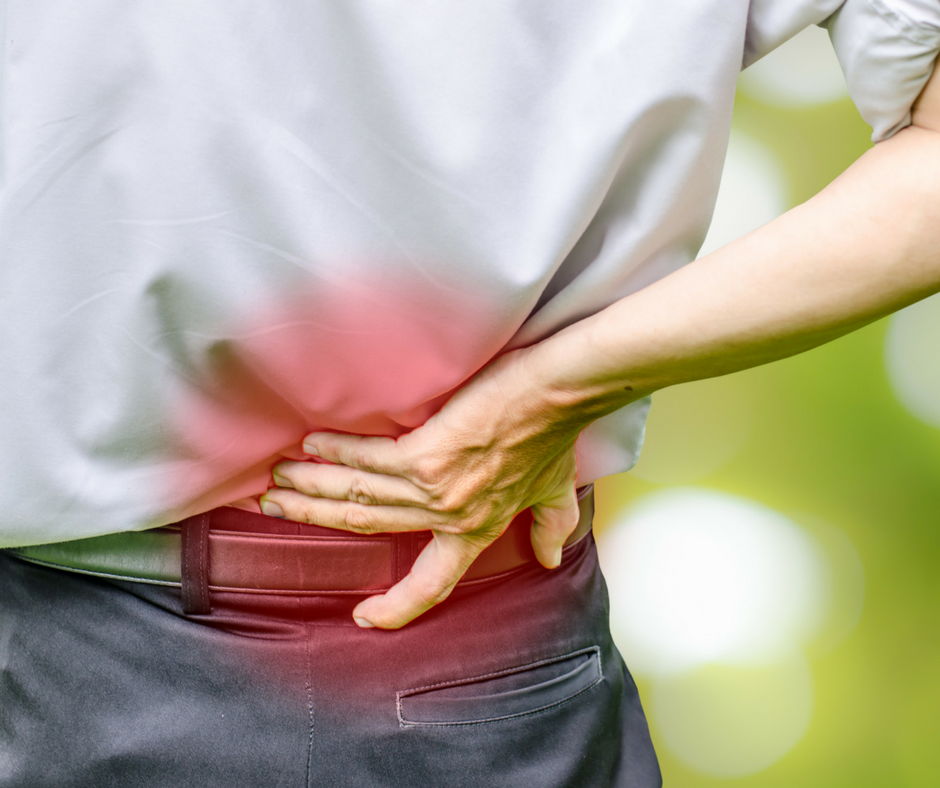Ignoring your symptoms?
By the time our consultants see a patient’s slipped disc, the condition has usually been ignored over a long period of time, and worsened to the point where they cannot walk easily, develop sciatica or in general live their life with more or less constant pain. Our patients have also usually had a slipped disc diagnosed after having seen their GP about the problem and been referred for an MRI scan. While we have seen and treated successfully many cases of severe slipped discs, there are ways that you can potentially spot the signs and symptoms of a problem in your back that could at some point become a slipped disc. Being aware of these symptoms and knowing when to seek treatment can help a patient significantly reduce the severity of the injury. As a result treatment for a more minor slipped disc can help your recovery process and generally less rehabilitation will be needed.
Spot the Early Signs
If you’re suffering from lower back pain that perhaps only persisted for a couple of days and then disappeared – chances are your body has been able to recover from the injury and this may not need to be looked into. But if you’re suffering from lower back pain that is intermittent or persisting over a number of weeks into months – this is when you will need to get the problem investigated by a professional, a local chiropractor or osteopath. The pain itself could be just an uncomfortable feeling in the lower back or a niggling pain that comes and goes, or lingers for an extended period of time. Choosing this time to have a chiropractor or osteopath investigate problems with your back is vital, potentially saving you from experiencing more severe pain in the future.
Patients between the ages of 30 and 50 will typically notice:
Stiffness first thing in the morning
Pain aggravated by bending & lifting movements
Difficulty finding a comfortable position when sitting
Tightness or aching in the surrounding muscles
Radiations into the arms or legs
Aching, tingling or burning sensations

Fix Your Disc From Home?
Our Approach To Treating Slipped Discs
All of our treatments here at The Mayfair Clinic can be used to rehabilitate disc injuries. Our main treatment for disc injuries would be Spinal Decompression: a safe and effective treatment specifically for use in disc problems with up to a 90% success rate. This can be used for disc injuries in the neck and lower back, using a gentle stretch on the spine between two programmed high and low settings to perform a pumping action on your discs. This will encourage nutrients back into the discs to create an optimal healing environment, and simultaneously take the pressure off the area to ease your symptoms. The efficacy of Spinal Decompression has been proven time and time again in medical trials and studies, and is a much safer treatment when compared to ongoing use of painkillers let alone resorting to injections or surgery.
To help improve the position and health of your spine, we utilise our Spinal Impulse Adjusting technology to encourage your spine back into a more optimum alignment. When normal alignment of your spine is lost over time, your joints can become stiff which can result in areas of your spine experiencing more pressure than others and eventually becoming injured. By correcting this alignment your body is able to distribute weight bearing so that you can move fluidly and effectively cushion your spine against daily stressors.
Relief for Brand New and Old Slipped Discs
For newer or older injuries that have perhaps persisted over a number of months or years, K Laser therapy can work a treat for achieving a quicker and more complete healing of an injury. Our K Laser uses light technology, targeting injuries in a specific area to help boost circulation – a process that is able to draw vital nutrients to an injured area. By boosting the circulation of an injured area, this will help to reduce inflammation, muscle spasms and stiffness – to help relieve pain immediately and continue the healing process even when the treatment has been completed.
If you have been experiencing niggling or persistent lower back or neck pain that just won’t shift, or perhaps you’ve already been diagnosed through imaging with a slipped disc, contact a member of our expert team today for an examination. A first visit with us will include an in-depth examination with one of our osteopaths, imaging if necessary, a diagnosis and treatment. You can also learn more about treatment without surgery in our related article here
Contact Us.
Email Us
info@themayfairclinic.com
Call Us
0203 947 32 22
Clinic Address
4 Cavendish Square, London, W1g 0PG.